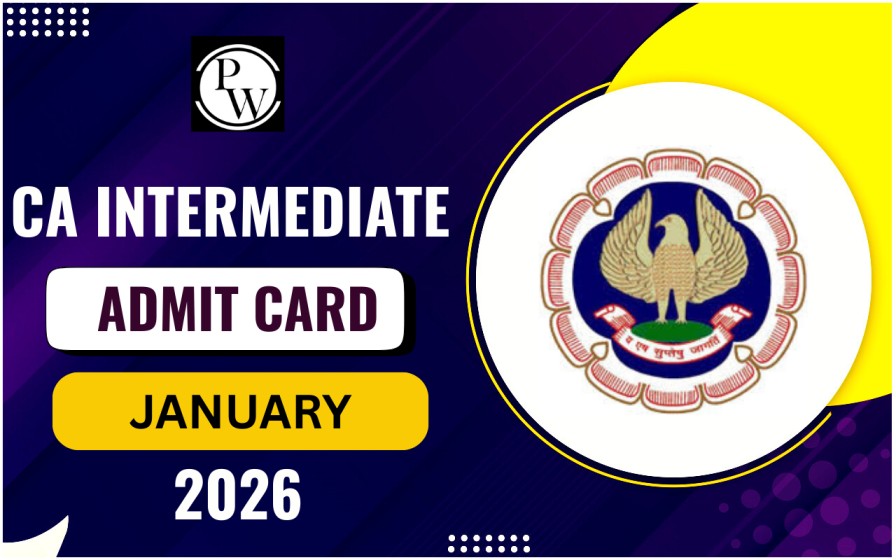
In India, direct taxes are what individuals or businesses pay directly to the government. These taxes can't be passed on to someone else. Individuals, companies, and other legal entities like limited liability partnerships are the ones who pay these taxes directly to the government.
The Central Board of Direct Taxes (CBDT) is the official body set up by the Central Board of Revenue Act, 1963, to handle these taxes in India. CBDT manages the laws related to direct taxes and gives suggestions for planning them. Let's dive into what direct taxes are, their types, and the advantages they offer for CA Exams .What Is Direct Tax?
Direct taxes are charges based on the principle of ability to pay, meaning those with more resources and higher incomes pay more. These taxes are designed to redistribute wealth within a country. They can't be passed on to others and must be paid by the individuals or companies they're imposed on. Failure to pay them on time can lead to penalties and even imprisonment. The bracket taxation system can sometimes discourage people from striving for higher incomes since it means they'll face higher taxes. This might lead some to limit their productivity to avoid paying more taxes. On the other hand, indirect taxes are applied to goods and services, meaning individuals pay them when they make purchases. These taxes are collected from retailers and wholesalers regularly.Types of Direct Tax
Various direct taxes are imposed by the government, including income tax, corporate tax, capital gains tax, and securities transaction tax.Income Tax:
This tax applies to an individual's income above a certain exemption limit. It's based on tax rates set by the government, varying according to income brackets. Failure to pay can lead to penalties or imprisonment. For businesses, income tax splits into:- Corporate Tax: Applied to the profits of companies, with rates depending on whether the company is domestic or foreign, and its revenue.
- Capital Gain Tax: Levied on gains from selling capital assets like property or stocks, categorized as short-term or long-term gains.
Securities Transaction Tax:
This tax is imposed on transactions involving securities listed on Indian stock exchanges, such as stocks and bonds. Rates vary based on the security type and transaction nature.| Also Check: | |
| Management Accounting | Financial Accounting |
| Auditing and Assurance | Taxation |
| Financial Management | Business Laws and Ethics |
Who Is Eligible to Pay Direct Tax?
- If you're a salaried individual making less than Rs 50 lakh yearly from salary, property, or other sources, you need to file taxes using ITR-1 form.
- Individuals and HUFs without income from business or profession gains must file using ITR-2.
- Those with income from business or profession gains must use ITR-3.
- Individuals, HUFs, and non-LLP firms earning less than Rs 50 lakh with income from professions and businesses as per Sections 44AD, 44ADA, and 44AE should file using ITR-4.
- Entities other than companies, individuals, and HUFs should file using ITR-5.
- Companies not claiming exemptions under Section 11 file using ITR-6.
- Individuals and firms required to furnish returns under Section 139(4A) or 139(4B) or 139(4D) should file using ITR-7.
- Persons and companies required to furnish returns under sections 139(4A) or 139(4B) or 139(4C) or 139(4D) only, file accordingly.
Importance of Direct Tax
Direct taxes play a crucial role in nation-building, benefiting the country as a whole. They work by taking a portion of individuals' incomes, ensuring fairness based on what they earn. By doing so, they help maintain economic and social stability. Additionally, they play a role in controlling inflation by reducing the demand for goods and services. As more people join the workforce, the government collects more taxes, leading to increased revenue. This revenue is then used to support underprivileged communities, promoting wealth distribution. Furthermore, direct taxes promote transparency, as they're paid directly from taxpayers to the government, playing a vital role in the economy's functioning. Learn about direct taxes and their significance for CA Exams. Enroll now in PW CA Courses to master taxation concepts and excel in your exams. Boost your career today!Direct Tax FAQs
What are direct taxes in India?
Direct taxes are charges individuals or businesses pay directly to the government, based on their income or profits, without the ability to pass them on to others.
Who manages direct taxes in India?
Direct taxes in India are managed by the Central Board of Direct Taxes (CBDT), established under the Central Board of Revenue Act, 1963.
What are the types of direct taxes?
Types of direct taxes in India include income tax, corporate tax, capital gains tax, and securities transaction tax.
How do I know if I'm eligible to pay direct taxes?
Eligibility to pay direct taxes depends on various factors like income sources, business profits, and entity type. Different tax forms are used based on these factors.
Why are direct taxes important for nation-building?
Direct taxes play a vital role in nation-building by ensuring fairness in wealth distribution, maintaining economic and social stability, controlling inflation, and generating revenue to support underprivileged communities.
🔥 Trending Blogs
Talk to a counsellorHave doubts? Our support team will be happy to assist you!

Check out these Related Articles
Free Learning Resources
PW Books
Notes (Class 10-12)
PW Study Materials
Notes (Class 6-9)
Ncert Solutions
Govt Exams
Class 6th to 12th Online Courses
Govt Job Exams Courses
UPSC Coaching
Defence Exam Coaching
Gate Exam Coaching
Other Exams
Know about Physics Wallah
Physics Wallah is an Indian edtech platform that provides accessible & comprehensive learning experiences to students from Class 6th to postgraduate level. We also provide extensive NCERT solutions, sample paper, NEET, JEE Mains, BITSAT previous year papers & more such resources to students. Physics Wallah also caters to over 3.5 million registered students and over 78 lakh+ Youtube subscribers with 4.8 rating on its app.
We Stand Out because
We provide students with intensive courses with India’s qualified & experienced faculties & mentors. PW strives to make the learning experience comprehensive and accessible for students of all sections of society. We believe in empowering every single student who couldn't dream of a good career in engineering and medical field earlier.
Our Key Focus Areas
Physics Wallah's main focus is to make the learning experience as economical as possible for all students. With our affordable courses like Lakshya, Udaan and Arjuna and many others, we have been able to provide a platform for lakhs of aspirants. From providing Chemistry, Maths, Physics formula to giving e-books of eminent authors like RD Sharma, RS Aggarwal and Lakhmir Singh, PW focuses on every single student's need for preparation.
What Makes Us Different
Physics Wallah strives to develop a comprehensive pedagogical structure for students, where they get a state-of-the-art learning experience with study material and resources. Apart from catering students preparing for JEE Mains and NEET, PW also provides study material for each state board like Uttar Pradesh, Bihar, and others
Copyright © 2026 Physicswallah Limited All rights reserved.









